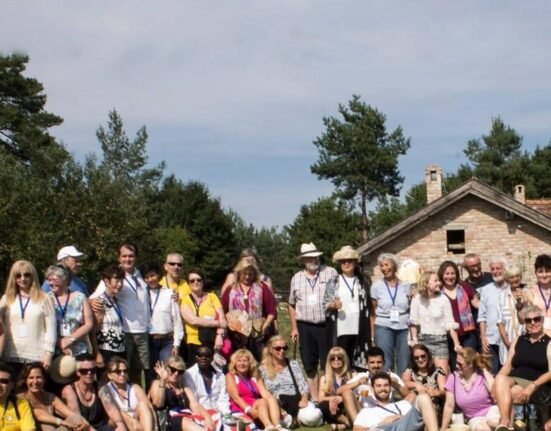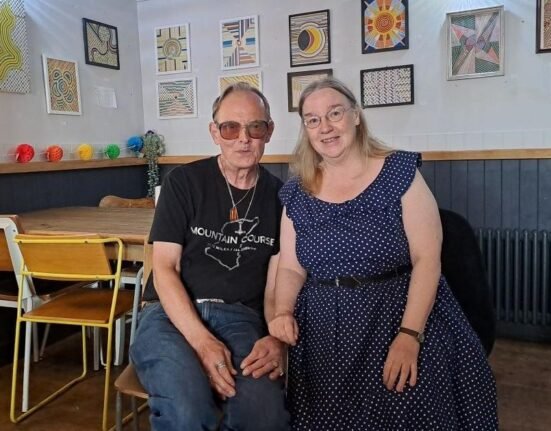
Lara Peeters
Lara Peeters is a trailblazing digital art historian, blending her Master’s Degree in art history with a Master after Master degree in digital humanities. With a deep-seated passion for information technology, she specializes in the intricate image analysis of digital art reproductions. Her expertise extends to navigating linked open data, querying cultural APIs, and employing innovative data analytics and visualization techniques. A member of the Scientific Software Support Team since May 2023 at Ghent University in Belgium, Lara’s unique fusion of art and technology allows her to uncover new insights into the world of art, transforming how we engage with and understand cultural heritage.
Congratulations to Ghent University’s Lara Peeters – an HPC-AI Vanguard
What was your introduction to advanced computing?
I became interested in AI and its applications in art history while earning my bachelor’s degree in art history. I primarily focused on projects from 2019 and earlier that utilized AI tools to study art. This sparked my journey into learning Python independently and led me to an internship at the Koninklijk Instituut voor het Kunstpatrimonium/Institut royal du Patrimoine artistique (KIK/IRPA) in Belgium. During the internship, I examined the existing search function for the heritage collections managed by the institute. At that time, the search function for the dataset was basic and limited. I developed a proof of concept for a new search function using Elasticsearch and an AI plugin to enhance search results.
After completing my master’s in art history, I wanted to further develop my technical skills, so I pursued a Master in Digital Humanities at KU Leuven. This experience paved the way to my current position at Ghent University. In this role, I assist researchers with their software needs and was also introduced to High-Performance Computing (HPC).
Who or what has influenced you the most to help you advance your career path in this advanced computing community? Is there someone you would like to recognize?
I would like to recognize one of my colleague at UGent, Kenneth Hoste. Since I began my role, he has provided me with the support and encouragement to seize the numerous opportunities presented by MultiXscale, a European High Performance Computing Joint Undertaking (EuroHPC JU) Center of Excellence focused on exascale-oriented application co-design and delivery for multiscale simulations, as well as the EuroHPC federation platform.
 What is your passion related to your career path?
What is your passion related to your career path?
My main passion on my current career path is helping scientists to use computers to evolve their research and learn to take advantage of HPC systems. There are still researchers out there who primarily use their laptop even if their institute provides easy access to HPC systems.
What are your thoughts on how our countries build a stronger and deeper pipeline of talented and passionate HPC and AI professionals?
As someone from the humanities I think that there are researchers with a different view on the problems that we are facing in HPC and AI. And I would love to get more people with my background into the field of HPC.
What do you think it takes to be an effective leader in HPC and AI?
While I may not yet have the experience or expertise to call myself a leader in HPC or AI, I am passionate about guiding colleagues from the humanities toward these fields. AI has become deeply integrated into the humanities, particularly in linguistics, history, and art history, with a plethora of tools developed over the past few decades. However, many researchers remain unaware of the existence of high-performance computing and how easily they can access these powerful resources.
I aspire to raise awareness of HPC among researchers and assist them in leveraging it for their work. Through this journey, I hope to embrace a more prominent leadership role, helping to bridge the gap between the humanities and advanced computational methods.
Is there an aspect of your work that you are particularly proud of? Have you had a “Eureka” moment that you would like to share with the HPC-AI community?
During my studies, I primarily worked on my personal laptop, which meant that getting software to run was entirely my responsibility. Sometimes, it took me days to successfully install a program. By the time I finally got everything working, I often didn’t even care about its performance; I was just relieved that it was running and producing seemingly correct results.
When I started my professional role, I discovered that in the HPC community, there are specialists focused on tools like EasyBuild and Spack, which automate the software installation process. These tools ensure that not only does the software run, but it also performs optimally on the systems being used. I am thrilled to be part of these communities that collaborate to help researchers overcome the challenges of installing reliable and efficient software.

Photo credit: Aida Fadioui; Lara at the Mayer van den Bergh museum in Antwerp, Belgium
Through my involvement with MultiXscale, a European High Performance Computing Joint Undertaking (EuroHPC JU) Center of Excellence, I also became part of the EESSI (European Environment for Scientific Software Installations) initiative. EESSI aims to simplify the software installation process even further, completely removing this burden from researchers so they can focus on their work and effectively utilize the software in their research.
What changes or challenges do you see for the HPC / AI community in the next five-10 years?
An increasing number of researchers are discovering the transformative potential of HPC and AI, which is fantastic, as these tools often elevate the quality of their research. With the development of more user-friendly tools designed to simplify the process of working with HPC and scientific software, it’s becoming less essential for researchers to fully grasp the underlying complexities.
One of the key challenges we will face in the next 5-10 years is finding the right balance: ensuring we have enough HPC and AI experts who understand the intricacies of these technologies to support a growing community of researchers who may not have that expertise — and that’s perfectly okay. By fostering collaboration between these experts and researchers, we can create a vibrant ecosystem where innovation thrives, allowing everyone to focus on what truly matters: advancing knowledge and driving discovery.







